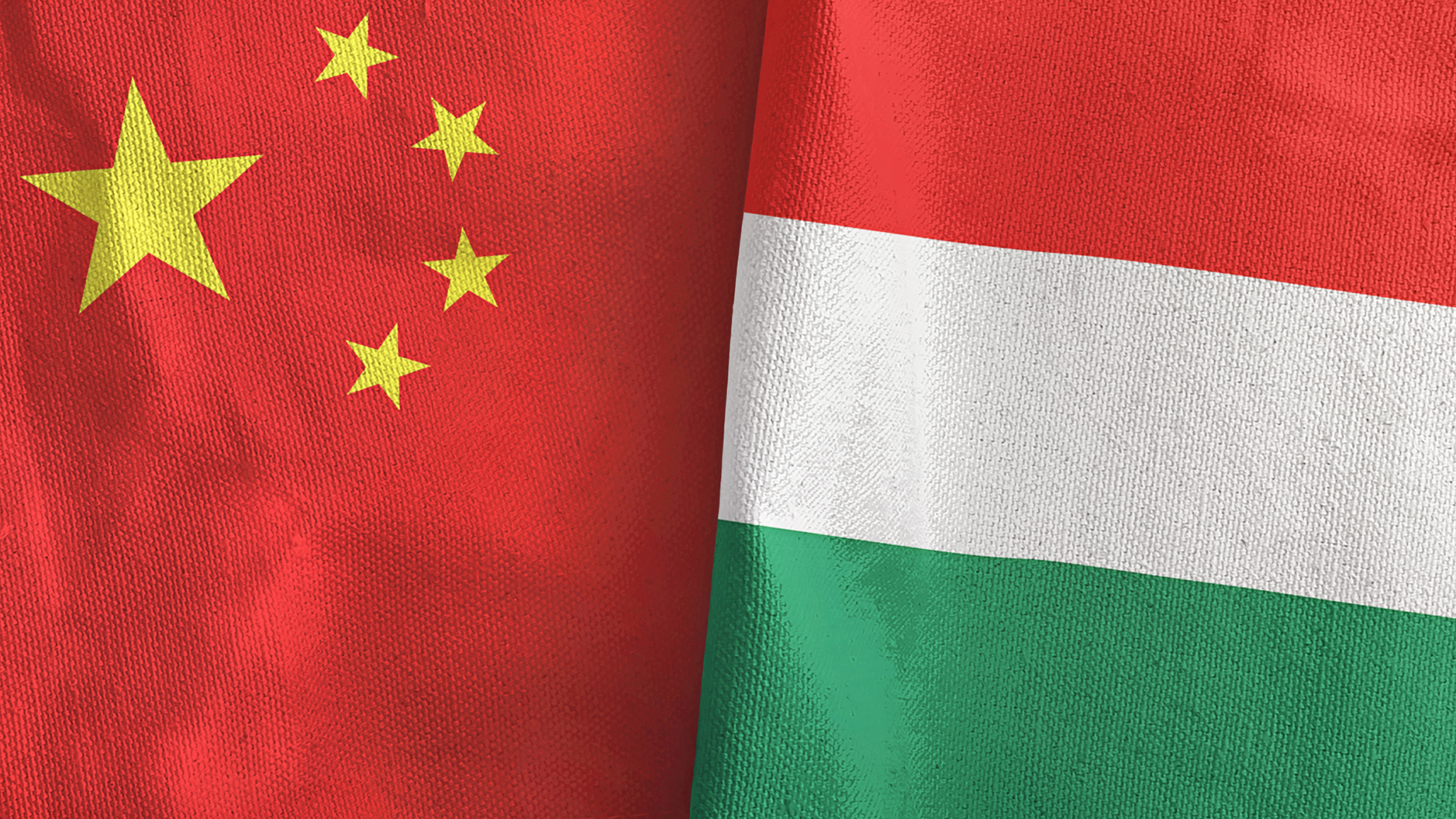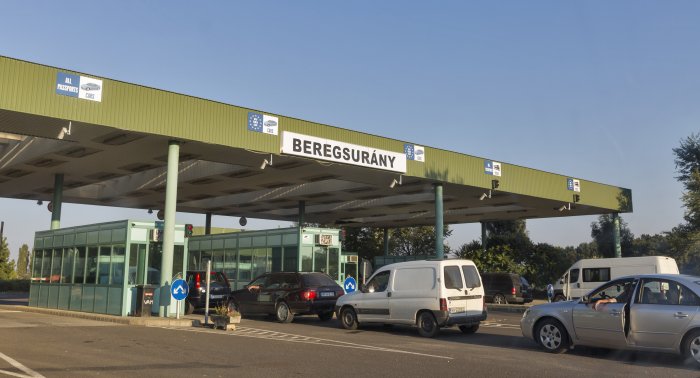‘We Know What to do’ Hungarian Ambassador Tells U.S. Charge d’Affaires

AmCham ambassadors: From left, Marc Dillard, U.S. Chargé d’Affaires, Dávid Kőhegyi, AmCham's second vice president, and Hungary's Ambassador to the United States Szabolcs Takács.
Photo by Lázár Todoroff
Hungary and the United States continue to enjoy deep relations, even if the change in the U.S. administration has introduced different focus points, representatives of the two countries agreed at an AmCham Hungary forum on August 30.
The event (significant for the chamber of commerce as it was its first public fully face-to-face event since the summer break) is now a tradition that sees the top representatives of the respective nations give their overview of the bilateral relationship.
This year that meant Marc Dillard, Chargé d’Affaires at the U.S. Embassy in Budapest, and Hungary’s Ambassador to the United States Szabolcs Takács.
“Hungary is a great destination for U.S. investment: This is a premier place to do business,” Dillard told the audience. The figures certainly seem to back that up.
Indeed, investments have kept growing, despite the pandemic. According to data provided by Takács, America is the second-largest investor in Hungary after Germany and has created 107,000 jobs. This year, U.S. businesses have been responsible for 25% of all jobs created by foreign investors, more than any other state.
Dillard had brought his own numbers: this year is the 100th anniversary of formal bilateral relations, trade between the countries comes to USD 7.4 billion a year, while America is the second most important export market for Hungary outside the EU.
The two diplomats covered much ground, including Afghanistan, energy dependency, the environment, taxation, and relations with China.
On energy, an area where the United States has long warned of over-reliance on Russian gas (agreement in principle on a new long-term between Russia and Hungary was reached the day after the forum), Takaács insisted Hungary was doing what it could. He noted that, for the first time in 70 years, Hungary now has sources of gas other than Russia, thanks to LNG imports from the U.S. via Croatia.
“It is our very strong policy and ambition to diversify our energy sources and routes to lower prices,” the ambassador said.
Not Shy
Dillard rated the bilateral relationship as being strong enough to withstand inevitable tensions. “There are areas of cooperation: economic, security, the [NATO] Alliance. But there are areas of difference, and we have not been shy about addressing them,” he said.
One specific recent case that has seen a difference of opinion between Washington and Budapest concerns the so-called anti-pedophile law Hungary has passed, “some elements of which we believe were anti-LBGTQ,” Dillard said. (He also noted that AmCham had expressed similar reservations.) The embassy believes the law “was not drafted very clearly,” and that has left “a lot of ambiguity,” the charge d’affaires added. Takács did not directly respond to that.
Another U.S. concern is a lack of transparency, especially in connection with deals involving China. “We need to be clear-eyed: in a business environment, a lack of transparency equals uncertainty, and uncertainty is bad for the business investment climate,” Dillard said.
He pointed to the Chinese financed Belgrade-Budapest rail link upgrade and the Fudan University campus in Budapest as areas of concern. “Details about these are not clear,” he told the audience.
Takács insisted Hungary knows who its allies are but refuses to discriminate based on a country’s home country. “I do not think anyone in the European Union wants to work with China to weaken the EU. We are not in an alliance with China or Russia. We do not want that, but that does not mean we will not work with them,” he said
“Eleven of the 16 Chinese companies [in Hungary] used to be in Western hands,” the Hungarian ambassador pointed out. “But when it comes to critical issues, we know what to do.”
Dillard struck a conciliatory tone on that aspect. “One of the concrete ways the Hungarian government can get a better sense of what is normal investment activity and when it becomes more of a national security matter is by strengthening investment screening procedures. But this is a global challenge. We want to work together on this,” he said.
Shared Values
For its part, Hungary firmly belongs to the European family and the West, Takács assured guests. “We are different than the Chinese and the Russians. We are much closer to America. We are different from Americans too, but more ties us than not. [...] We share values, and we know what our responsibilities are.”
Dillard made the point that, while the partnership in Afghanistan goes back 20 years and formal links 100 years, the relationship itself dates back much further, founded on cultural exchanges and people-to-people ties.
That is exemplified by Katalin Karikó, one of the pioneers of the messenger RNA (mRNA) research (which the chargé d’affaires described as a “global, life-changing technology”) used in the Moderna and Pfizer-BioNTech coronavirus vaccines.
The Hungarian-born biochemist and senior vice president of BioNTech trained at Szeged before continuing her research in the United States, where she is now an adjunct associate professor at the University of Pennsylvania.
How has the Hungarian-American relationship changed since Donald Trump was replaced as President of the United States by Joe Biden, the diplomats were asked.
“This [the Biden Administration] is a different government. [...] It is a liberal, left-wing government, and we are a conservative, Christian Democrat, right-wing government,” Takács said.
“I tell my American friends we cannot agree on everything. If we do, it means one of us has made a mistake because we have a different focus. My job is to build bridges, not burn them. Any democracy you can think about does some things differently, but, of course, we belong to the same value system.”
Dillard agreed that was a critical point. “There is very strong support in Washington for the system. We will work to uphold it because of what it has done for us in the past,” he concluded.
This article was first published in the Budapest Business Journal print issue of September 10, 2021.
SUPPORT THE BUDAPEST BUSINESS JOURNAL
Producing journalism that is worthy of the name is a costly business. For 27 years, the publishers, editors and reporters of the Budapest Business Journal have striven to bring you business news that works, information that you can trust, that is factual, accurate and presented without fear or favor.
Newspaper organizations across the globe have struggled to find a business model that allows them to continue to excel, without compromising their ability to perform. Most recently, some have experimented with the idea of involving their most important stakeholders, their readers.
We would like to offer that same opportunity to our readers. We would like to invite you to help us deliver the quality business journalism you require. Hit our Support the BBJ button and you can choose the how much and how often you send us your contributions.








